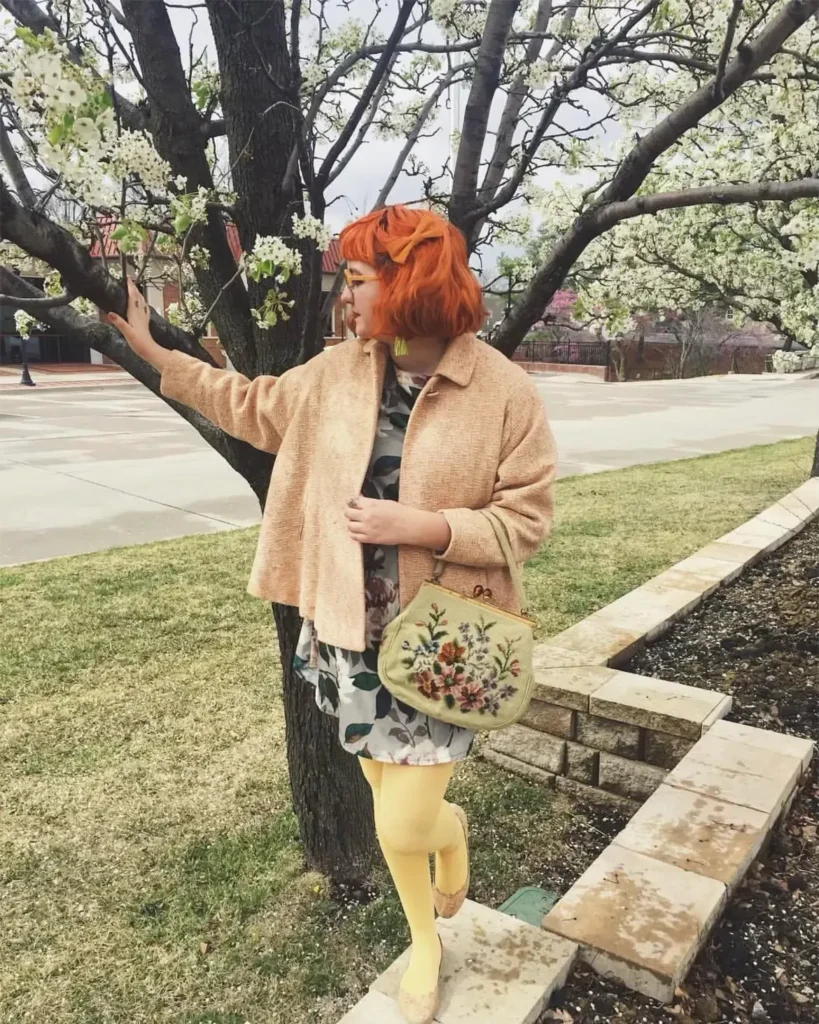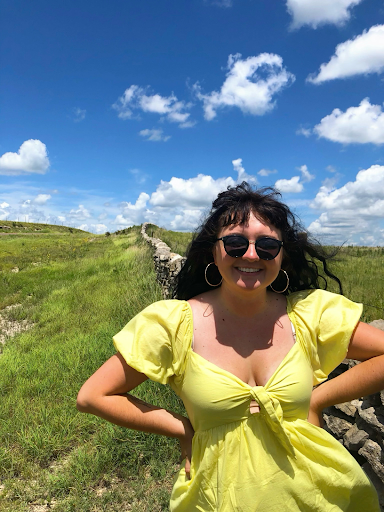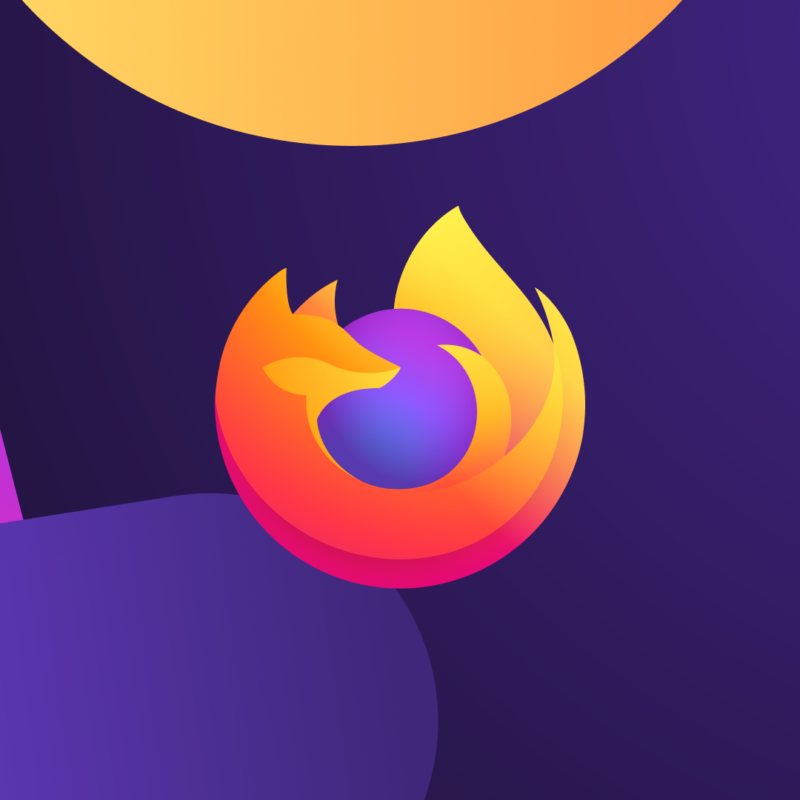What I learned when I stopped posting my life online, from a former influencer
 During my influencer and blogging era, 2016.
During my influencer and blogging era, 2016. This essay was originally published on The Sidebar, Mozilla's Substack.
I was an influencer years before it became mainstream in 2016. I shared my outfits on my fashion blog almost daily, along with recipes, travel itineraries, lifestyle photos, you name it. My blog upheld a twee aesthetic that I stuck to religiously. I made content (it wasn't called that yet), curated an aesthetic (it also wasn't called that yet) and blurred the lines between what was real and what was for the curated version of me. I was good at it and made money from sponsored content and paid ads. But I learned how overcurating can affect every part of your life.
I was always thinking about the shot I needed to get, if a restaurant was going to match my aesthetic, or if I needed to go thrifting to purchase new clothes because I had gone through most of my clothes in my previous blog posts. In the early 2010s, blogs that did well were a one-stop-shop for all lifestyle content. It was a lot of work, but that's what I strived for.
I was an influencer when the term was just blogger" and things were slower, but I never felt that. I struggled to keep up even with caffeine pills, being in my early 20s with a lot of energy and finding out that I liked being online and enjoyed it there. But by the time the term influencer" entered common conversations among coworkers and family, I was burnt out. I was over it, exhausted from overcurating my life. So I decided to stop posting.
Lesson 1: The best photos aren't stagedI kept my website up for a while, then shut it down completely. Going offline," I found that the best photos are the ones that are not staged, and you will find yourself with the most beautiful pictures of yourself. Of course we all know this, we all want those curated photo dumps for Instagram and candid shots of us just looking carefree... but what I'm saying is stop asking for photos altogether. Let people take pictures of you unasked. The best photos of myself were during the years I was offline because I didn't think about any photos in the same way. These were pictures I didn't ask for, therefore I wouldn't have that many to choose from. It felt almost like film pictures I developed, I had to pick from one or two.
Lesson 2: Hobbies hit differentI also found that you have a lot more free time when you don't have to be online. I still scrolled sometimes, I still read blogs, I still downloaded TikTok in 2020, but I didn't feel the need to scroll in the same way. When I was offline, I was only scrolling for pleasure like finding videos of a Furbie cult or Calico Critters collector drama.
Going offline,' I found that the best photos are the ones that are not staged, and you will find the most beautiful pictures of yourself.
But when I was blogging, and when I got back online for Tiktok and my Substack, I was scrolling for strategy. I needed to know what current trends I should talk about or follow, and I felt if I missed something online it could hurt my credibility. When I stopped blogging, I almost didn't know what to do with my extra time - I'm a girl with hobbies and friends and I was in my 20s, so this says a lot! I spent so long curating my online presence, picking out outfits, planning photoshoots, and replying to emails (not even to mention actual blogging!) that I had SO much free time. I could actually focus on my hobbies... for me. I didn't need to take photos of everything nor look at the menu of the restaurant before I went. Over time I got used to it and loved it. I no longer had to collect stamps or postcards, which was just something I did for my blog. I even took up new hobbies, ones that couldn't be translated into my blog or online, like watching anime and learning how to work a grill. Camping was not aesthetic enough for my blog, though I still went when I was blogging. After quitting I felt like I could go more often, because there was no post being counted on that weekend. I could do whatever I wanted without the fear of what will I post?"
 In 2020, after I had been offline for a few years and before joining TikTok. Lesson 3: Your personal style will change
In 2020, after I had been offline for a few years and before joining TikTok. Lesson 3: Your personal style will changeIt's been said that people can tell how much screentime you spend by how you dress, and I agree. If you are wearing everything trending, experimenting with the cutting edge micro trends and aesthetics, you are definitely online and probably online a lot. There is nothing wrong with that (besides overconsumption, but that is for a different topic), but when you exit an online space you exit those types of information. While blogging I was wearing tons of layers, everything pre-1980s vintage, and uncomfortable hats and fabrics. I bought my first pair of athletic leggings with pockets after I quit blogging and I wondered why I deprived myself of this type of comfort for so long. You will be dressing for you and those only physically around you, not other people online and not trying to go viral. It will be different and you should embrace that. It's a luxury not everyone has.
Lesson 4: You learn the things you actually enjoy, and those you don'tIt took time to adjust to being offline, but those times might have been my happiest. Nothing felt calculated anymore. Once you stop posting, you're not in the public eye in the same way. I didn't worry if someone in my city recognized me at the grocery store in my pjs and hungover. I started being sillier. I decided to use some extra time I had to write more poetry and do readings at local venues. It took a while for me to realize this, but after I took down my blog there was no real trace of me. I could be anyone. I was just Lindsey. Not Lindsey the fashion blogger, just Lindsey.
I started being sillier. I decided to use some extra time I had to write more poetry and do readings at local venues. It took a while for me to realize this, but after I took down my blog there was no real trace of me. I could be anyone. I was just Lindsey. Not Lindsey the fashion blogger, just Lindsey.
Now you have permission to cut out what you don't really like. I hated selling vintage clothing, which was part of how I made money with my blog. I would buy so many clothes so I could wear new items in my posts. It was very time consuming. Vintage reselling can be exploitative and I didn't like that. I also really did not like the way I dressed anymore. My readers responded the best to very true vintage" looks (all items at least 20 years old) and I had been over that for years. I liked vintage band tees, leopard print, and chain link necklaces at this point. When I wore different looks, my views went down. My collabs, how I made money, were usually with vintage-inspired fashion companies, so I couldn't change my look or I would lose money. I didn't feel like rebranding myself either. But I changed my style anyway.
When I quit blogging and influencing, I realized how unhappy I was. I was chasing cheap dopamine and working 24/7 to barely make ends meet, and while it was fun for a while, it was only for a while.
Around December 2023, I went back online" and started posting regularly on TikTok. I told myself it would always be about the things I say, what I want to wear, and what I want to write - never chasing paid sponsorship or selling clothes to my followers. Although, you cannot escape thinking about the algorithm if you are online and making money and funding a career. But I know the boundaries and what life is like when I'm not creating content. I specifically choose not to do influencing" when coming online again because when I'm not trying to sell myself to brands, I can truly be myself. For me, creating content is a job, not a lifestyle. Ultimately, I'm building a life I just want to be in - online or not.
 Download Firefox Take control of your internet
Download Firefox Take control of your internet The post What I learned when I stopped posting my life online, from a former influencer appeared first on The Mozilla Blog.